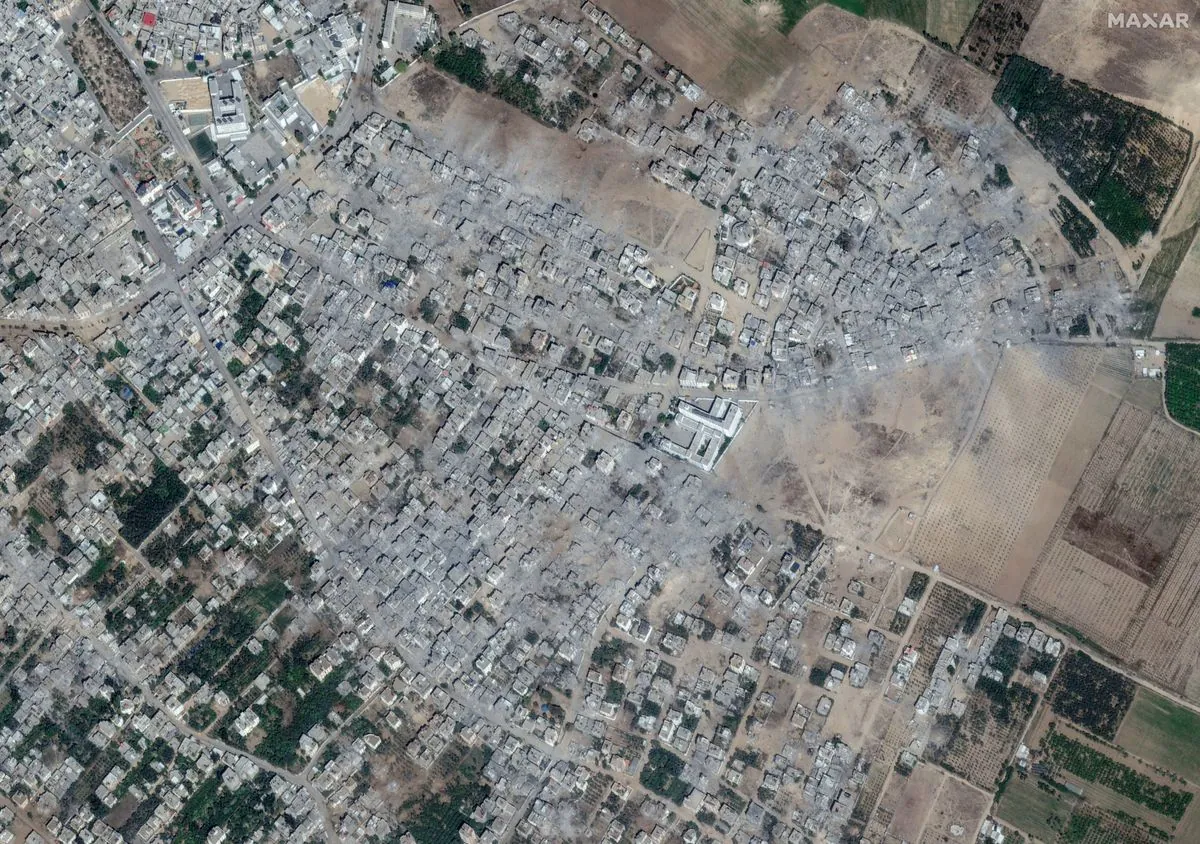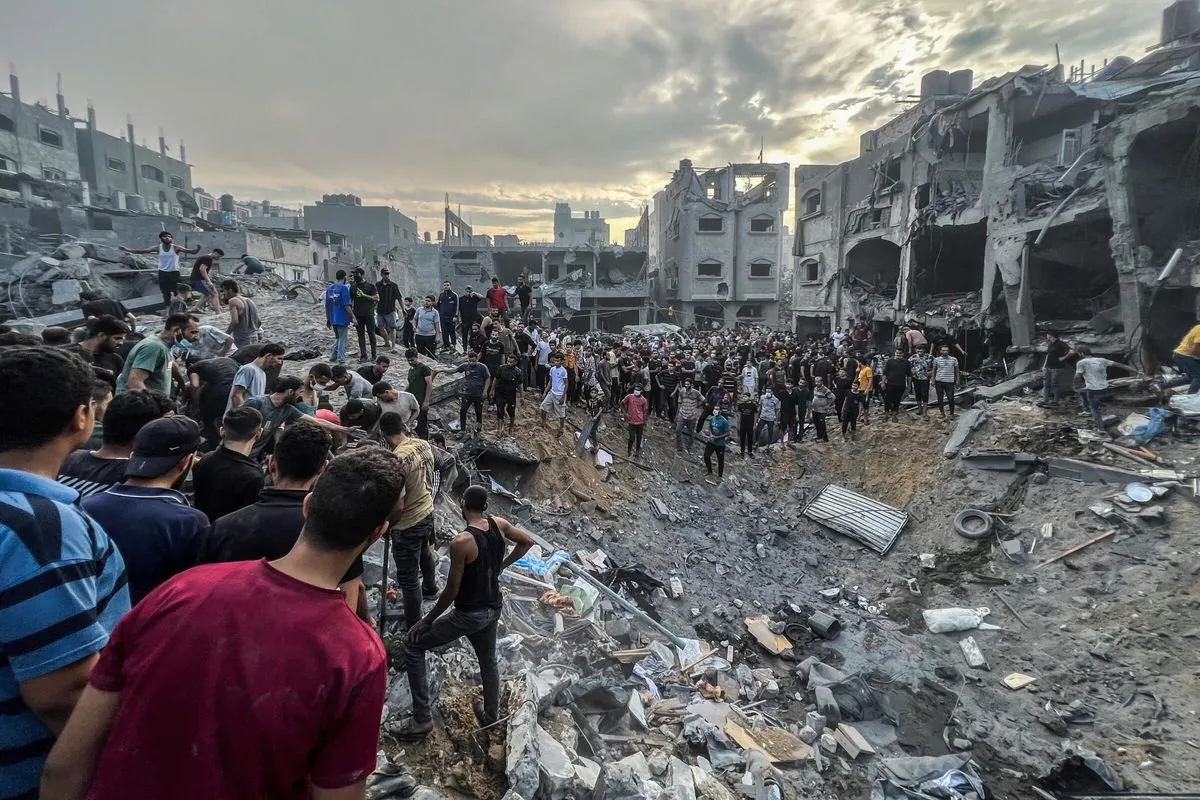Israeli Hostages Found Dead in Gaza as Ceasefire Talks Continue
Six Israeli hostages' bodies retrieved from Gaza with bullet wounds. Ceasefire negotiations resume in Cairo as 109 hostages remain in captivity. Hostage families criticize government's failure to secure timely deal.

In a tragic development, the bodies of six Israeli hostages were recovered from Gaza on August 24, 2024, with evidence of bullet wounds, according to the Israeli military and the Hostage Families Forum. This revelation comes amidst ongoing efforts to negotiate a ceasefire between Israel and Hamas, the militant group controlling the Gaza Strip.
The Israeli military also reported retrieving four additional bodies, presumed to be Hamas militants, which did not show signs of gunshot wounds. This discovery has intensified the urgency for a resolution to the conflict, which has now lasted for nearly 11 months.
Currently, 109 hostages are believed to remain in Gaza, with approximately one-third presumed deceased. The Hostage Families Forum emphasized the critical nature of the situation, stating, "Every minute without a deal could cost another hostage's life."

The ongoing conflict traces back to October 7, 2023, when Hamas militants launched an attack on southern Israel, resulting in approximately 1,200 casualties and the abduction of around 250 individuals. In response, Israel initiated a military campaign in Gaza, which has led to widespread destruction and displacement.
"The return of the hostages is only possible through a deal. The recovery of six hostage bodies is no achievement but rather a testament to the government's failure to reach a deal on time and return the hostages alive."
The Gaza Strip, one of the world's most densely populated areas, has been under a blockade by Israel and Egypt since 2007. This prolonged isolation has contributed to a severe humanitarian crisis, with the region facing one of the highest unemployment rates globally.
Internationally mediated ceasefire talks resumed in Cairo on August 24, 2024. However, progress has been slow, with both Israel and Hamas maintaining firm positions on their demands. The United Nations has repeatedly called for a ceasefire, emphasizing the urgent need to address the humanitarian situation in Gaza.
The conflict has deep historical roots, dating back to the late 19th century. Despite efforts such as the Oslo Accords in 1993, a lasting peace remains elusive. The "two-state solution," long proposed as a potential resolution, continues to face significant challenges.
As negotiations continue, the international community watches closely. The United States, Israel's largest military aid donor, has been actively involved in diplomatic efforts. Meanwhile, the International Criminal Court has opened an investigation into alleged war crimes in Palestinian territories, adding another layer of complexity to the situation.
The ongoing crisis underscores the urgent need for a diplomatic solution that addresses the security concerns of Israel while also ensuring the rights and well-being of Palestinian civilians in Gaza and the West Bank.


































